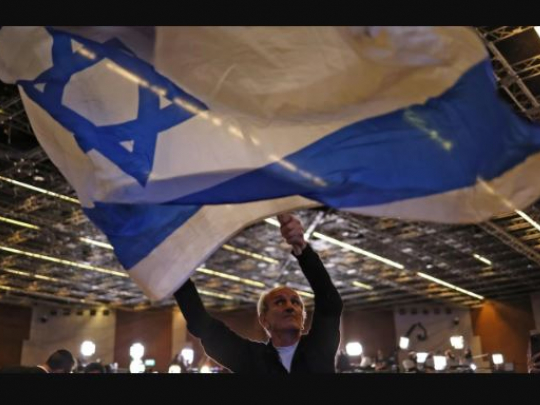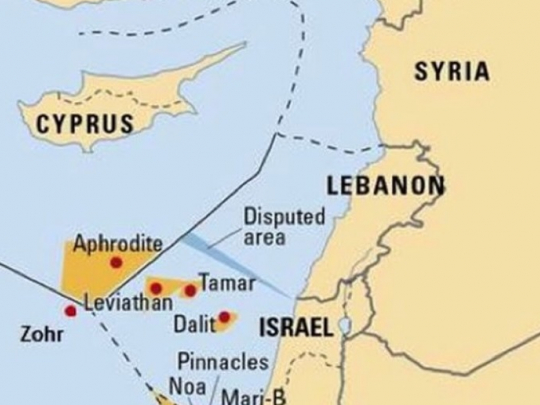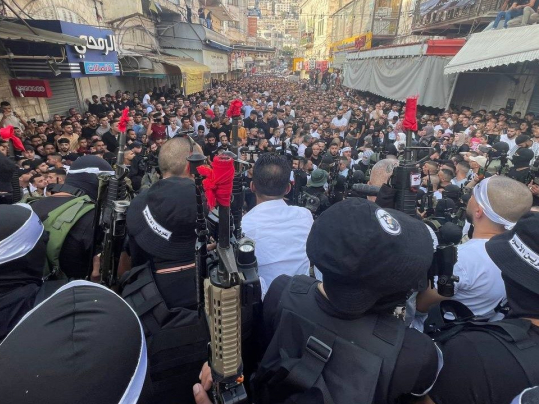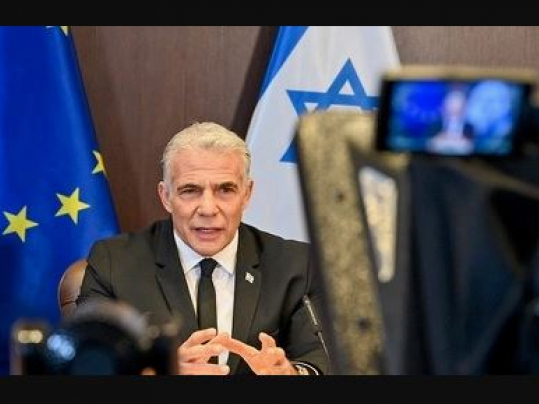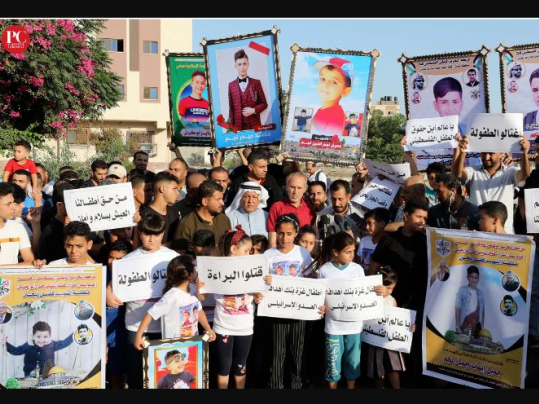Crowdfunding Colonialism: Who Is Bankrolling Israel’s Latest Excursion Into The West Bank?
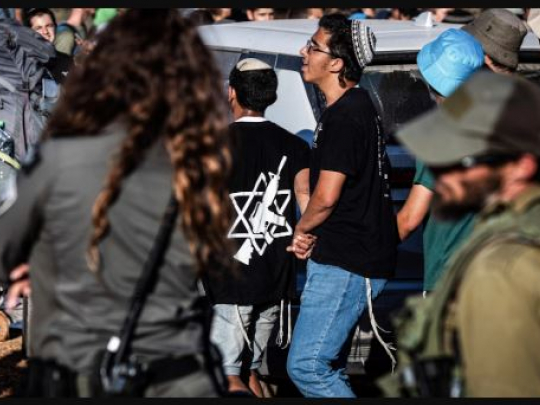
On Wednesday, thousands of Israeli settlers from the Nachala settler group — along with Israeli lawmakers — flocked to the occupied West Bank and established seven illegal outposts in a land grab operation propelled by a massive fundraising campaign.
By Thursday evening, Israeli forces evacuated the day-old outposts and detained and later released 11 settlers. Despite the evictions, Nachala remains determined to continue building on land they claim is only reserved for Jews, with plans to set up new outposts as early as next week.
Nachala, the group responsible for the infamous Evyatar outpost erected last year, has been preparing since April to establish outposts en masse in July. Initially, the plan was to build 28 new outposts throughout the West Bank, but that number was scaled back in recent days. Settlements are legal under Israeli law, but illegal according to international law. Outposts, makeshift encampments built by settlers, are illegal under both Israeli and international law, but some have been retroactively authorized by the Israeli government.
Despite outposts being illegal, Nachala widely advertised its plan on social media and in news outlets. The Israeli Defense Minister Benny Gantz, the Israeli army, and Israel Police all issued statements on Tuesday saying security forces will be deployed to thwart any action.
This particular outpost operation was made possible through Nachala’s fundraising efforts, specifically, a crowdfunding campaign that raised over 5 million shekels (or $1.5 million) so far.
Several left-wing organizations have denounced Nachala’s efforts, including Israeli human rights group, Yesh Din, and activist organizations, Peace Now and Looking the Occupation in the Eye. On Wednesday, activists confronted Nachala settlers at several sites throughout the West Bank.
Guy Hirschfeld, an activist with Looking the Occupation in the Eye, told MintPress News the group contacted the Israel Police, Israel Tax Authority, and Israeli Defense Minister Benny Gantz before Nachala’s operation was carried out, but still, nothing was done to prevent Nachala’s plans from being executed, saying,
"It’s all by the state and its part of the big plan of ethnic cleansing of Palestine.”
THE MONEY BEHIND THE MOVEMENT
Nachala is funded in a myriad of ways. The settlement movement receives money through its financial arm, Geula Titnu La’aretz (in English: “the land shall be redeemed”), a registered non-profit in Israel’s Registrar of Associations, through its public benefit company, Hakupah Haleumit Lebinyan Eretz Yisrael or “The National Fund for the Building of the Land of Israel Ltd.,” and through donations. A spokesperson for Nachala did not respond to requests for comment on the organization’s funding and settlement operation tactics.
Similar to how Nachala raised money to build the Evyatar outpost, the settler group has again used the fundraising site Charidy for its recent settlement-building operation. Charidy is an Israeli subsidiary of the American company of the same name. Charidy did not respond to requests for comment on its platform being used to fund illegal activity.
The largest donation was for 1 million shekels (about $290,000) from an anonymous donor. Other significant donations came from Friends of Nachala Toronto and Beit Midrash for the Torah of the Land of Israel, a Jewish study center in the Israeli city of Petah Tikva.
Jewish settlers march in the hills of the Palestinian West Bank to build a new colony outside the settlement of Barkan, July 20, 2022. Ilia Yefimovich | dpa | AP
The Nachala movement also supports itself through Geula Titnu La’aretz and Hakupah Haleumit Lebinyan Eretz Yisrael, both of which act as real estate companies. Hakupah Haleumit Lebinyan Eretz Yisrael was set up in 2017 to buy privately-owned Palestinian land. Geula Titnu La’aretz has also engaged in real estate deals, although it remains unclear if their land purchases have materialized.
Geula Titnu La’aretz didn’t file annual reports with the Israeli registrar in the last two years, and therefore lost its certification of compliance this year. The latest financial data states it received nearly $140,000 in 2019 — all domestic contributions. Hakupah Haleumit Lebinyan Eretz Yisrael received nearly $200,000 in 2020, according to its recent filings. The majority of that sum — about $150,000 — came from abroad. Neither organization’s registrar files provide information on where these donations are from.
While organizations listed in the Israeli registrar are required to report financial data, they do not have to detail where the specific contributions originated. In 2016, Israel passed an amendment to the Transparency Law requiring all non-profit organizations that receive 50% or more of their funding from foreign government entities to disclose these grants. Critics argue this piece of legislation unfairly targets left-wing organizations, specifically human rights groups, which receive a majority of their funding from foreign governments, compared to right-wing groups which receive most of their monies from private entities.
Hirschfeld described how this lack of transparency helps keep Israeli settlement funding a secret. “The right wing doesn’t have to declare where the money is from,” he said.
"There is a lot of evangelist money, fascist money from Europe and the state, and things like this, but they don’t have to publish it, so it’s difficult to follow the money of the right-wing organizations.”
Like other Israeli organizations, Nachala has a U.S. wing entitled Friends of Nachala Israel. However, Friends of Nachala Israel does not have a website nor is the organization registered with the Internal Revenue Services, so information on its director or funding isn’t known.
BACKED BY THE STATE
The Nachala movement has received significant backing from Israeli society. Several politicians and prominent rabbis have endorsed Nachala’s operations, including Interior Minister Ayelet Shaked and Israeli members of parliament, Bezalel Smotrich, Simcha Rothman, May Golan, and Orit Strouk.
While Israeli right-wing organizations have been promoting Nachala’s activity, in particular the American non-profit, Americans For A Safe Israel, has openly supported Nachala’s activity online. The group’s followers have also reportedly donated to the Evyatar outpost last year, according to AFSI’s director.
And while Israeli authorities worked to dismantle the outposts, activists assert the Nachala group is supported by the Israeli state, specifically through settlement municipalities. “This plan is being promoted by more than 20 Israeli right-wing movements and bodies led by the Nachala Settlement Movement, with active involvement and support from settlements and regional and local municipalities.” Yesh Din’s executive director, Ziv Stahl, wrote in a letter to the U.S. ambassador to Israel, Thomas R. Nides.
As evidenced on Nachala’s Charidy site, several settlements donated to its campaign, including Gush Etzion, Kedumim, Bet El, and Mateh Binyamin Regional Council, which governs 46 settlements and outposts in the West Bank.
“These settlement municipalities are strongly cooperating with [Nachala],” Dror Etkes, an anti-settlement activist and founder of Israeli land research organization, Kerem Navot, told MintPress News.
Etkes detailed that through local and regional settlement councils, Nachala is provided with road access, electricity, water, building contractors, and other equipment.
“[Nachala’s operation] cannot work without governmental money. It cannot work without consent of the governmental bodies, military, police, and the Civil Administration,” Etkes said, describing how Nachala settlers were surveying the land for weeks prior to building the recent string of outposts. “Not only did the military not stop them, but they actually helped.”
With Israel’s current interim government, Nachala’s plans may not come fully into fruition, given their outposts were torn down in a day. But if a right-wing extremist coalition takes power in November, then Nachala may gain the political reality needed to execute their land grab fantasies.
- Source : Jessica Buxbaum - MintPress News





